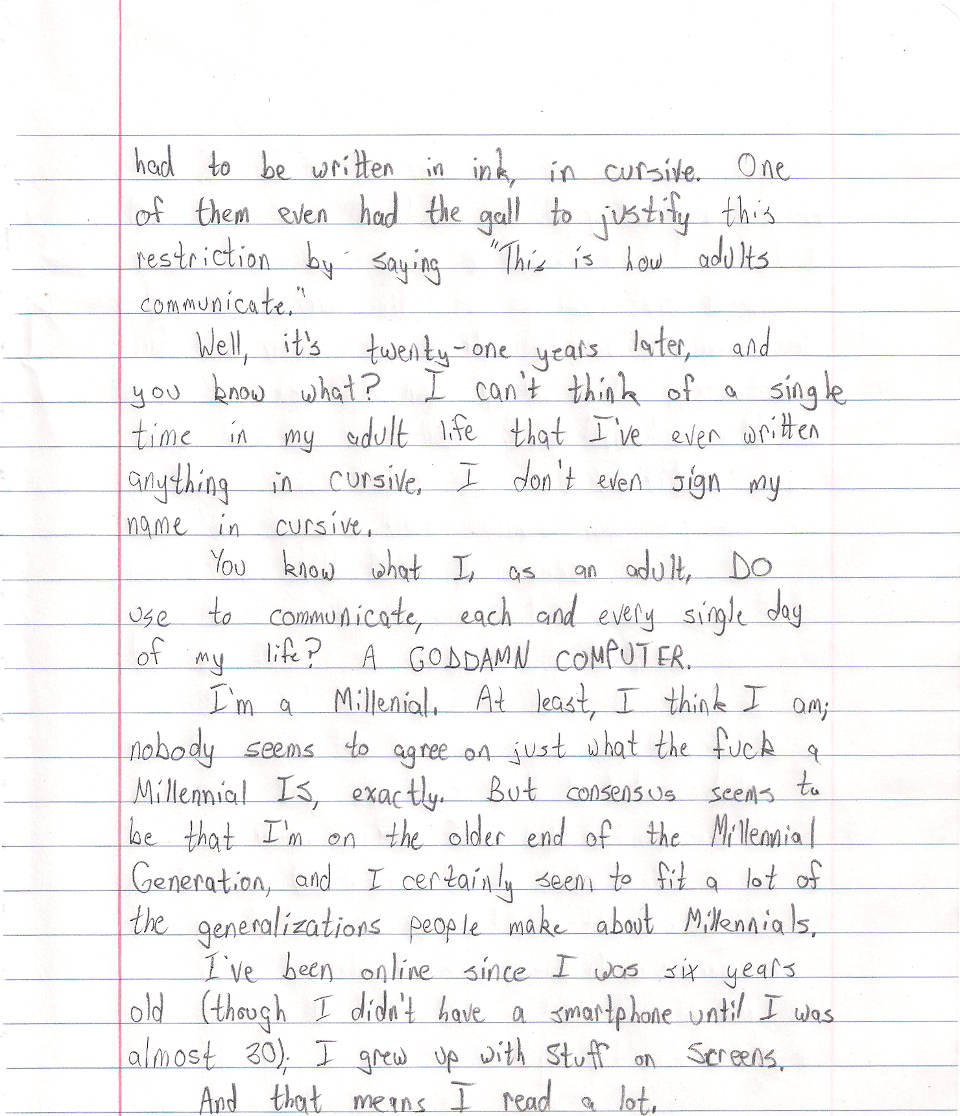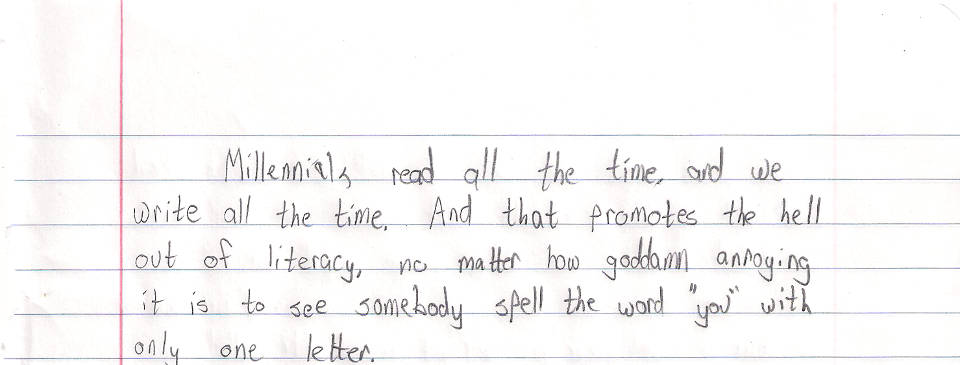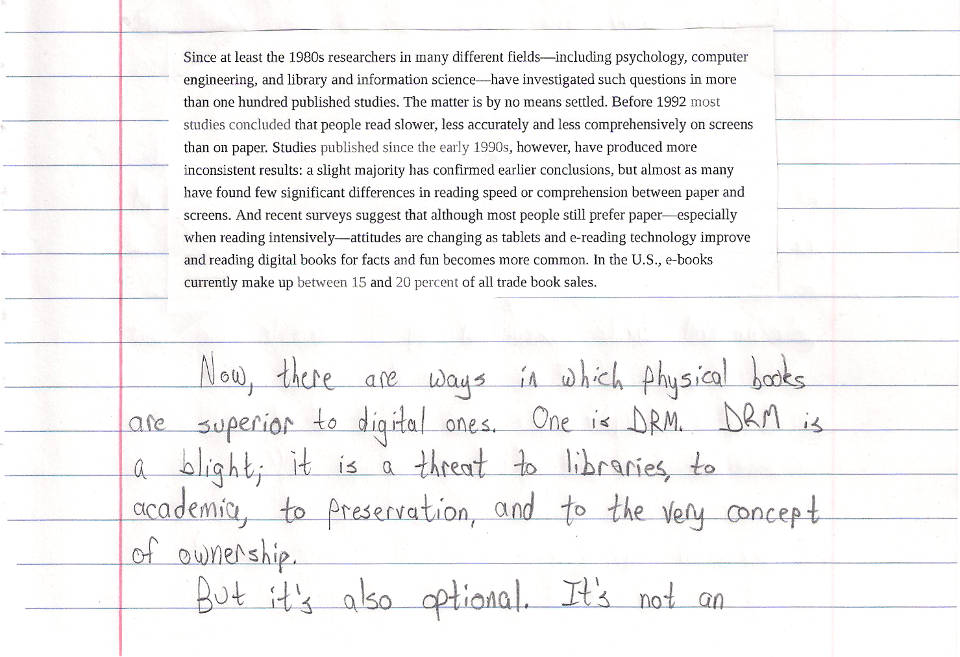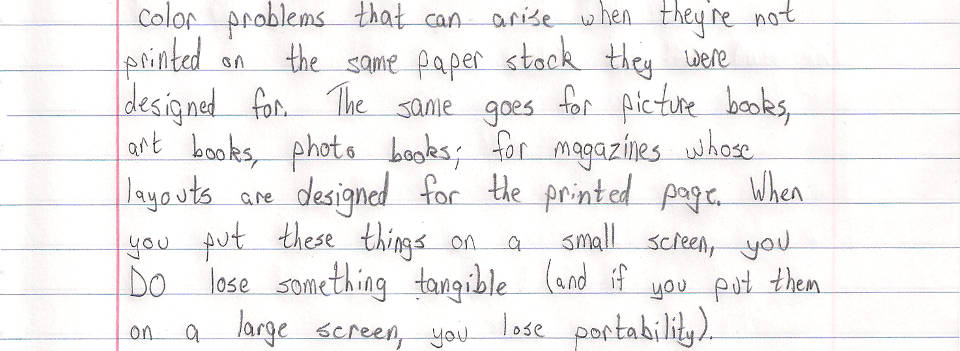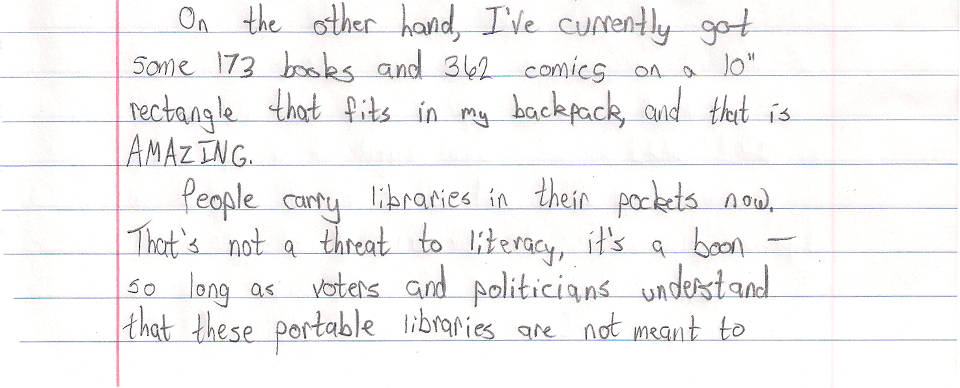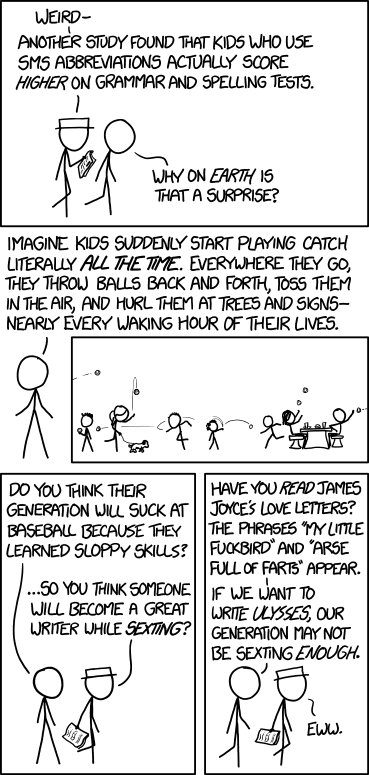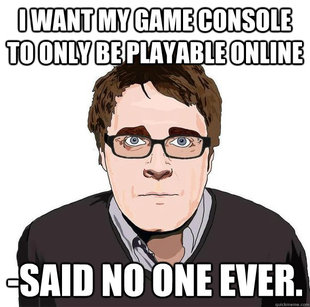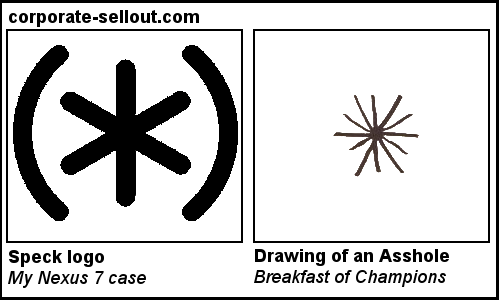Yesterday, in a discussion about bullshit argument tactics employed by corporate mouthpieces defending bad policies, I quoted a bit of EA COO Peter Moore's asinine response to his company's commanding lead in the Consumerist's annual Worst Company in America survey.
I picked one particular bullet point, but really the entire thing is an amazing example of what I'm talking about. Logical fallacies piled on top of terrible metaphors wrapped in insults to the reader's intelligence. I think the whole piece really deserves a going-over, piecemeal.
The tallest trees catch the most wind.
That's an expression I frequently use when asked to defend EA's place in the gaming industry.
You know, I used to live in a house that had a tall tree out back.
It's true that it caught a lot of wind.
It's also true that that wind made it pretty fucking hazardous. One time during a storm, one of its branches broke off and smashed through a block in our fence.
We were lucky it just hit the fence by the alley, and not power lines or our roof or our neighbors'.
You know how it got so tall?
By digging around in shit.
Its roots grew down through our sewage pipes. The place had serious plumbing problems for years and years.
Finally, before we moved out, my roommate (the owner of the house) had the tree taken out. Then he dug a trench in the backyard, and had the pipes replaced. The long day of digging coupled with the exposure to sewage made him seriously ill.
So, you know, "The tallest trees catch the most wind" is one way of putting it.
Another way is, the tallest trees are dangerous, expensive, and may leave you covered in shit and physically ill.
And it comes to mind again this week as we get deeper into the brackets of an annual Web poll to name the "Worst Company in America."
This is the same poll that last year judged us as worse than companies responsible for the biggest oil spill in history,
I'ma stop you right there, Pete.
I mean, nice weaseling on the plural there, but you're talking about BP.
I wonder why British Petroleum didn't win the Worst Company in America poll.
the mortgage crisis, and bank bailouts that cost millions of taxpayer dollars.
Now, here Moore makes what may be the only reasonable point in this entire piece.
And that's, yes, it is fucking ridiculous to suggest that EA's the worst company in America.
It's not even in the running.
EA may be terrible, but anyone who tells you it's the worst company in America is stupid, lying, or both.
The complaints against us last year were our support of SOPA (not true),
Moore is technically correct here, but it's a bit misleading. According to techdirt, Sony, Nintendo, and EA never actually endorsed SOPA -- but they did sign on to a letter from the Global IP Center that suggested something a whole lot like SOPA.
and that they didn't like the ending to Mass Effect 3.
Yeah. That's why people are calling EA the worst company in America.
That and they hate gay people. But I'm getting ahead of myself.
This year's contest started in March with EA outpolling a company which organizers contend is conspiring to corner the world market on mid-priced beer, and (gulp) allegedly waters down its product. That debate takes place in bars -- our audience lives on the Internet. So no surprise that we drew more votes there.
Let me cut to the chase: it appears EA is going to "win." Like the Yankees, Lakers and Manchester United, EA is one of those organizations that is defined by both a legacy of success, and a legion of critics (especially me regarding all three of those teams).
Again, Moore makes a fair point that there's an echo chamber here. The kind of person who hates EA is exactly the same kind of person who likes to game stupid online popularity contests. EA keeps getting voted the worst company in America for the same reason that Time's list of the most influential people in the world spells out "KJU GAS CHAMBERS".
But once again Moore brings up an analogy that maybe works on a level besides the one he intended.
Because hey, Pete -- when people say they don't like Kobe Bryant, maybe it's not just because he's so goddamn good at basketball.
Are we really the "Worst Company in America?" I'll be the first to admit that we've made plenty of mistakes. These include server shut downs too early, games that didn't meet expectations, missteps on new pricing models and most recently, severely fumbling the launch of SimCity. We owe gamers better performance than this.
Moore may be willing to admit EA's made mistakes, but sure doesn't seem to keen on acknowledging what those mistakes actually are. Watch him trotting out the company line that the problem with the SimCity launch was that they didn't implement its always-on requirement correctly, not that the always-on requirement was the mistake.
Some of these complaints are 100 percent legitimate -- like all large companies we are not perfect. But others just don't hold water:
- Many continue to claim the Always-On function in SimCity is a DRM scheme. It's not. People still want to argue about it. We can't be any clearer -- it's not. Period.
Oh boy, now we're getting into the real nutmeat of the bullshit here.
I covered this one yesterday, but to review:
- Yeah, it is a DRM scheme. It's the same kind of crap EA pulled with Spore's periodic authentication and the stories about players being denied access to legally-purchased copies of Dragon Age 2 for criticizng EA on messageboards, cranked up to 11. The always-on connection is not required to play the game, so why the fuck is it there if not as a DRM scheme? Which brings us to:
- Even if it weren't DRM, it would still be a terrible fucking idea that prevented people from playing a game they paid for. In fact, if it's not intended as DRM, then EA is even stupider, because they stuck an always-online requirement into a game that didn't need it for no reason instead of for a stupid reason.
- And finally: If you follow up the phrase "We can't be any clearer" with an argument that is literally just a slight paraphrase of "Nuh-uh!", maybe you should hire some people who can be clearer.
- Some claim there's no room for Origin as a competitor to Steam. 45 million registered users are proving that wrong.
Okay, first of all, who is claiming that?
The problem isn't that Steam couldn't use a little competition. The problem is that Origin is a system whereby people's ability to play their legally-purchased games is contingent on whether or not a forum mod somewhere gets pissed off at something they say. Or possibly just gets pissed off when they ask Amazon for tech support.
Anyway, I'll get on the "45 million people can't be wrong!" fallacy in a minute. You had a little more mileage you wanted to wring out of it first?
- Some people think that free-to-play games and micro-transactions are a pox on gaming. Tens of millions more are playing and loving those games.
Well, Mr. Moore, since you're the one who brought up banks and oil companies, let's talk about that for a minute.
A shitload of people still buy gas from BP and keep their money in Chase banks. Enough to make your "45 million" brag look like loose change in the ashtray of the car they're filling up with BP gas using their Chase credit card. And hell, speaking of ashtrays? Hundreds of millions of people are smoking and loving cigarettes, too. Does that mean everyone who thinks lung cancer is bad must be wrong?
- We've seen mailing lists that direct people to vote for EA because they disagree with the choice of the cover athlete on Madden NFL. Yes, really...
I don't doubt it. The Internet is a big place. You can find someone who will say absolutely any kind of dumbass thing.
This particular rhetorical tactic is a close cousin of the strawman, with the added benefit that it allows people to act indignant when accused of invoking a strawman. "It's not a strawman! A guy totally said it!" All you have to do is point to the craziest person you can possibly find and pretend he's a representative example of everyone who disagrees with you, and presto!, you can just ignore all the people making well-reasoned and -informed arguments!
- In the past year, we have received thousands of emails and postcards protesting against EA for allowing players to create LGBT characters in our games. This week, we're seeing posts on conservative web sites urging people to protest our LGBT policy by voting EA the Worst Company in America.
That last one is particularly telling. If that's what makes us the worst company, bring it on. Because we're not caving on that.
I love that one.
Seriously, it is a really tough call whether my favorite part of that bulleted list is the "It's not. Period." part, or the part where Moore straight-up implies that if you don't like EA, it's because you hate gay people.
On a related note: can anyone name an EA game that allows you to play as a gay character that isn't made by a subsidiary that was letting you play as gay characters before EA bought it?
We are committed to fixing our mistakes. Over the last three weeks, 900,000 SimCity players took us up on a free game offer for their troubles. We owed them that.
Ah yes, that would be one of the small, arbitrary selection of free games you made available, of which Ars Technica said:
It's a curious mix of titles, not least because only one of the games is likely to have any particular appeal to SimCity players: SimCity 4. And even that is an odd choice. Many SimCity players already own--and love--the old game, and many regard it as the benchmark against which all city-building games (including the new one) are judged. The problem is that those comparisons aren't necessarily favorable to the new game.
Seeing Warfighter on the list, one wonders if EA wants to be hated even more than it currently is. The game is a stinker.
But back to Moore:
We're constantly listening to feedback from our players, through our Customer Experience group, Twitter, this blog, or other sites. The feedback is vital, and impacts the decisions we make.
If you were listening to feedback, you would have cut this shit out after the Spore backlash. Or the Dragon Age 2 backlash. Or the Battlefield 3 backlash. Or the every single fucking game on Origin backlash. Or the other Battlefield 3 backlash. Or or or windy trees! Windy treeeeeeeeeeeeeeees!
But Mr. Moore, you've made yourself abundantly clear: EA does not give a fuck how many of its customers are dissatisfied, all it cares about is how many of its customers are still happily paying money for its games. As long as games like Spore and SimCity are bestsellers, EA has no incentive whatsoever to back off its terrible, anti-consumer policies.
...and after that there are two more paragraphs of Moore pretty much saying exactly that, another vague "we can do better" that doesn't actually acknowledge what they've done wrong, and a restatement of the thesis because Peter Moore learned in high school English that you're supposed to close an essay by restating the thesis. Fuck it, you get the idea, I don't need to go on.














